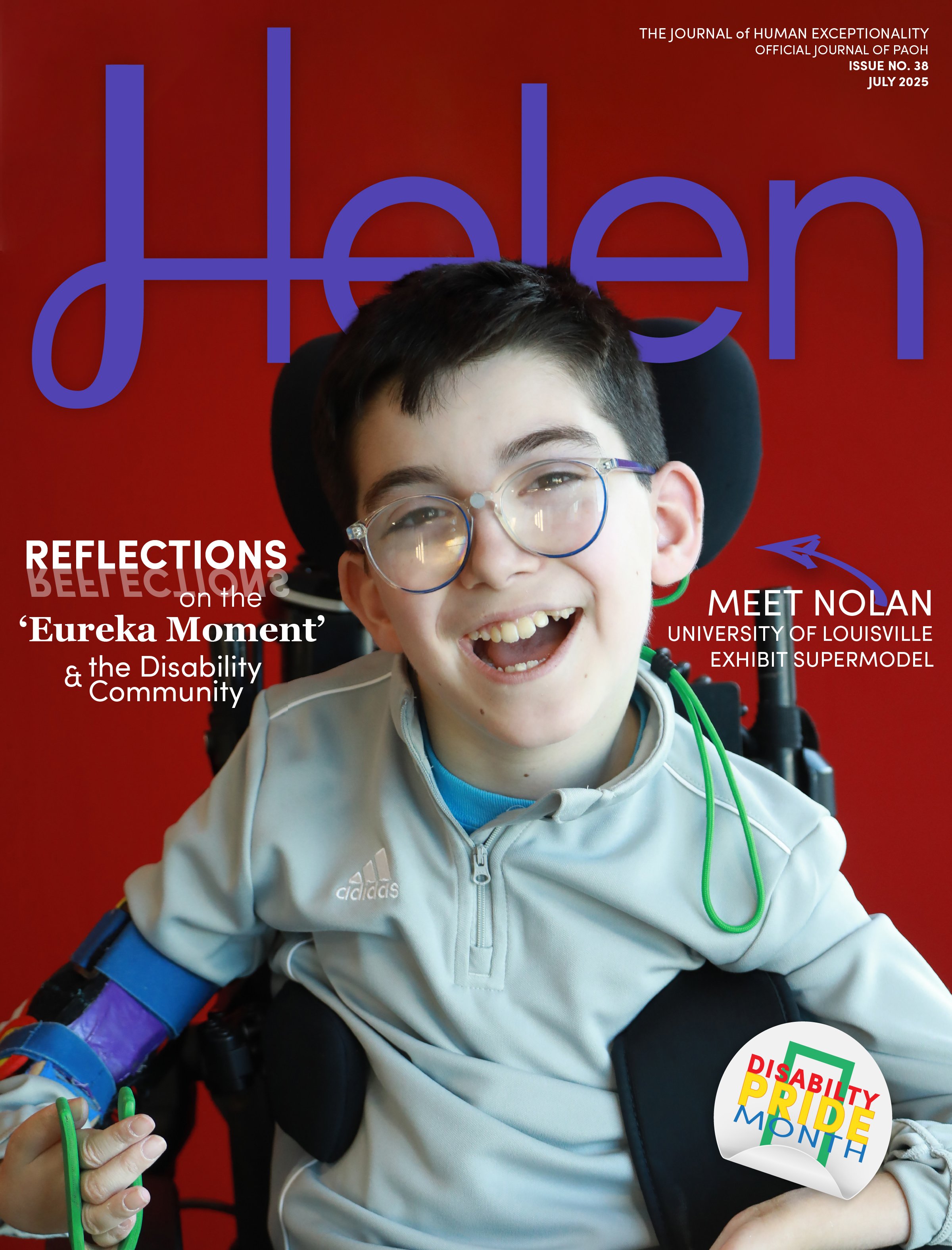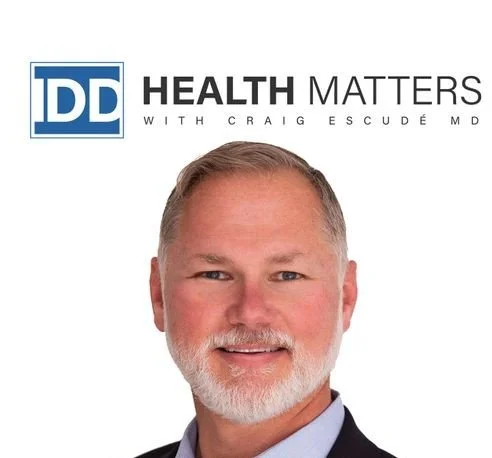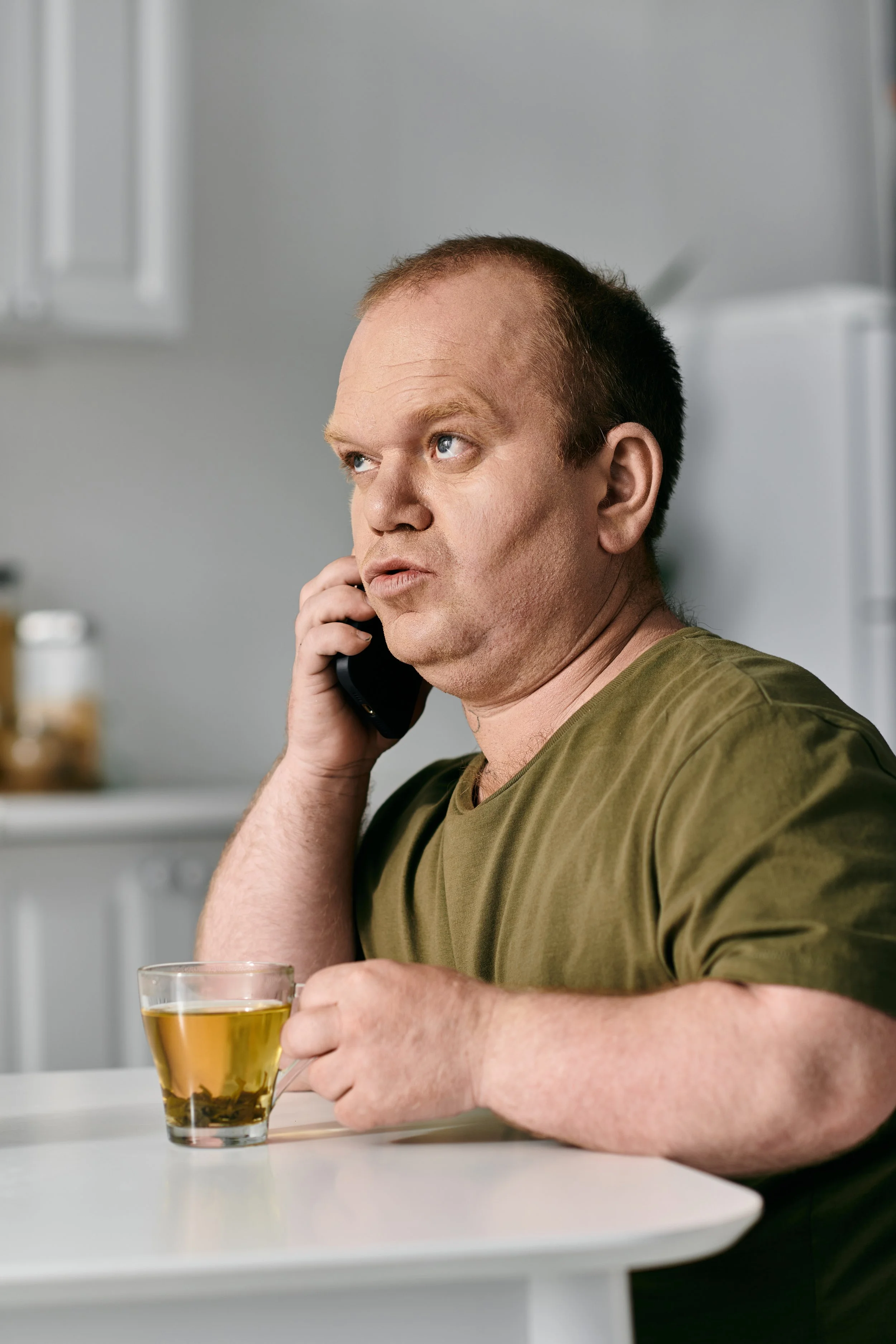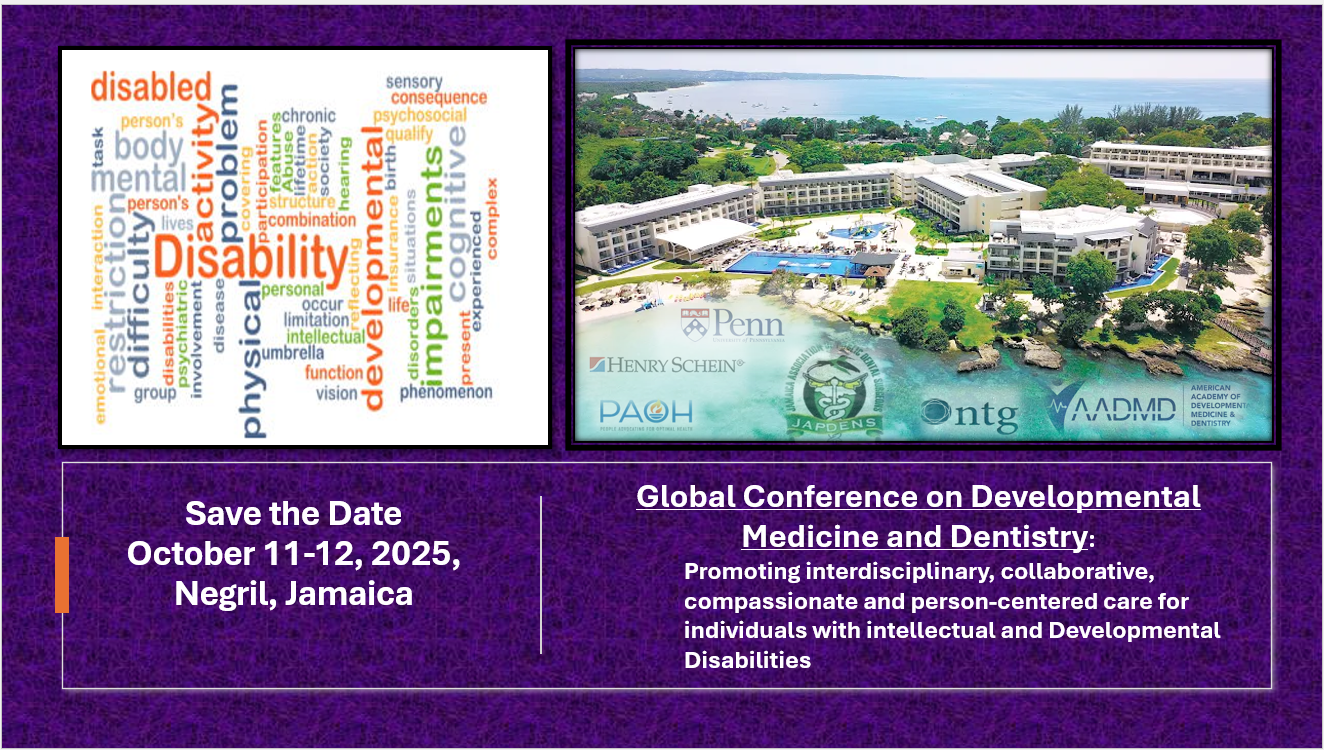Cover photo: Rick Guidotti and POSITIVE EXPOSURE
JULY Cover Feature
MEET NOLAN
Nolan is a spirited 11-year-old who loves a good game of Roblox and being the best big brother to Henry (8) and Mary (2). There are very few things that slow him down in life. Nolan is active in archery, power wheelchair soccer, and the academic team at his school. Nolan is living with TRANSVERSE MYELITIS.
Celebrating Disability Pride Month
Overcoming Barriers to Improving Health of Adults with Neurodevelopmental Disorders—Historical Perspective
Philip May, MD, Director of Quality Improvement & Research International Foundation for Chronic Disabilities, Inc; Clinical Associate Professor of Medicine (Gratis) University of Louisville School of Medicine Louisville, KY: “Neurodevelopmental disorders” (NDD) are defined as childhood-onset genetic or acquired chronic health conditions that interfere with various functions of the brain. At least since the late 1800’s, physicians have recognized that persons with neurodevelopmental disorders represent a special population, due to lack of understanding of the causes, complexity, and management of their frequently encountered health conditions.”
Nurses Tribute: A Needed Reminder of Those Who Were There
Dr. Rick Rader: “The procession of the Nurses Honor Guard, with the participants wearing traditional nursing uniforms (white caps, shoes, and blue capes) carrying candles and lamps (the symbol of the nursing profession) was a memorable and moving experience. It served as a much needed reminder that there are some of us who have devoted their lives to the comfort, support, and care of others—and that it is both our responsibility and privilege to point to them and chant, ‘they were there.’”
The Path to Equity
A Podcast with Dr. Craig Escudé and Alison Barkoff: “In a recent episode of the IDD Health Matters podcast, Dr. Craig Escudé sat down with Alison Barkoff , Hirsh Health Law and Policy Associate Professor at George Washington University’s Milken Institute School of Public Health. Together, they explored the intersection of healthcare, civil rights, and the lived experiences of people with intellectual and developmental disabilities (IDD). Their conversation, recorded live at the National Association of Sate Directors of Developmental Disabilities Services (NASDDDS) conference, offers a powerful look at how policy, practice, and advocacy intersect to shape lives.”
A Brief History of Medical Experiments and Its Importance Today
Mayra E. Salgado: “The 1940s brought forth a series of the most inhumane actions in history, like The Holocaust, various wars, starvation, disease, and genocide. Among the heinous activities in concentration camps, the Nazis would use the camp inmates for medical experiments without their consent and force them into questionable and dangerous situations. After the war ended and the camps shut down, the Nazi trials began, the most infamous one called The Nuremberg trials:…held to bring Nazi war criminals to justice.”
MORE FROM THE STACKS
EDITOR’S NOTE: There are thousands of journals published around the world that relate to the disability community. It is virtually impossible to capture even a fraction of them. HELEN receives "stacks" of journals and selectively earmarks what we feel are "must read" articles of interest for our readers. It's a HELEN perk!
PAOH President’s Message: Thoughts on Disability Pride Month
Steven Perlman, DDS, MScD, DHL (hon): “July is Disability Pride Month. It is the commemoration of the anniversary of the Americans with Disabilities Act (ADA), which was signed into law by President George H.W. Bush on July 26, 1990…to prohibit discrimination and ensure equal opportunities for people with disabilities in various areas, including employment, public service, public accommodations, and telecommunications.”
Reflecting on the ‘Eureka Moment’ and the Disability Community
Rick Rader, MD, FAAIDD, FAADM, Editor-in-chief, Helen Journal: “Like most people I’m a creature of habit….I have my routines and my rituals. My morning ritual is enjoying a cappuccino and checking out the New York Times Obituary Section….Since 1851, more than 200,000 people have been the subject of obituaries in The New York. While they obviously cover the most famous individuals, they have a knack for paying tribute to ‘ordinary people who have lived the most' ‘extraordinary’ lives.”
Change How You See, See How You Change
Change How You See, See How You Change, is a photography exhibition that redefines how we see medicine – not just as science, but as a deeply human experience. Through a partnership with Positive Exposure, the University of Louisville Health Sciences Office of Health Equity and Engagement, the Kornhauser Health Sciences Library, and the School of Medicine Department of Pediatrics, this exhibition aims to remind us that we all share fundamental human experiences.
New Study Calls for Age-Friendly Health Systems to Include Adults with Disabilities
The National Task Group on Intellectual Disabilities and Dementia Practices (NTG) is pleased to spotlight a newly published article co-authored by NTG Board Member Dr. Teresa Moro of Rush University Medical Center, titled “From the 4Ms to a Disability-Friendly Healthcare System.”
Unlocking Behaviors: Unintentional Weight Loss
Ley Linder, MA, M. Ed, BCBA and Craig Escudé, MD, FAAFP, FAADM: “John is a 38-year-old man with moderate intellectual disabilities, and although an effective communicator, his expressive speech is limited to small phrases or short sentences. He has medical diagnoses of vitamin deficiency, allergies, and constipation for which he takes docusate sodium, a multivitamin, and Vitamin D. Jonathan also takes clonidine, lamotrigine, lorazepam, risperidone, trazodone, sertraline, and bupropion.”
The Ethical Algorithm: Navigating AI and its Applications in the Lives of People with IDD - Part 3
David A. Ervin, BSc, MA, FAAIDD and Douglas Golub, BA, MS, SHRM-CP, DrPH(C): “This is the third of a five-part series on artificial intelligence (AI) and its emerging role in healthcare and community-based services for people with intellectual and/or developmental disabilities (IDD). In this installment, we examine ableism in AI, how it is formed in the first place and options to addressing it.”
POSTER PRESENTATIONS
Poster Presentations are a great way for students, researchers and faculty to showcase their hard work on a project. HELEN Journal believes there is an abundance of posters that could lead to organizations, institutions and providers adopting promising, evolving and novel programs based on learning about them at conferences. We urge HELEN Journal readers to visit our Poster Presentations periodically and to contact the presenters for further information. This month, posters from the AADMD 2025 Conference.
FROM THE STACKS
From the Stacks - When the need for high-quality dental care for patients with special health care needs meets a learning opportunity for dental residents, a thriving community partnership is born. The partnership between the School of Dental Medicine and the Hospital for Special Care (HFSC) epitomizes the benefits of a fruitful community partnership—UConn dental residents get exposure to caring for patients with special health care needs, while hospital patients get access to high-quality dental car
















